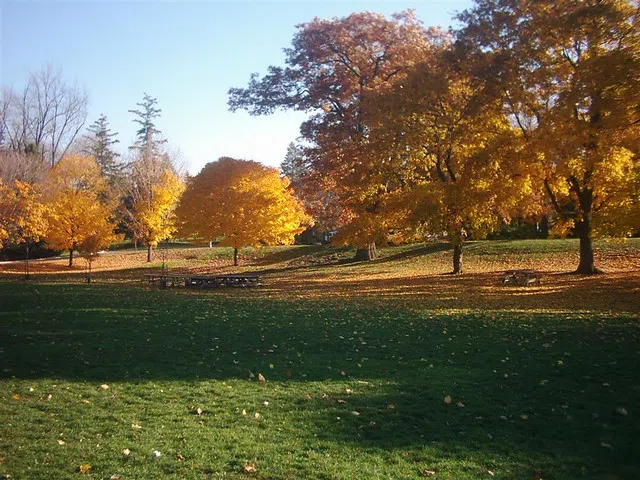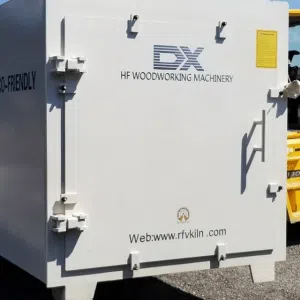
When a tree in the Forest City falls, what happens next?
Qasem Alsharari owns The Lumber Source, a lumber yard in London. He says instead of having fallen or dead city trees burned or chipped they put the wood to a better use.
“The type of wood that we work with is all urban salvage wood. So, we don’t cut forest. We try to be as environmentally sustainable as possible.”
The intent is for anyone in London, from a first time “Do-It-Yourself”-er to higher end furniture designers to be able to choose from local, sustainable wood.
 Wanting to set his business apart from other lumberyards in the area, Alsharari invested in a radio frequency vacuum kiln.
Wanting to set his business apart from other lumberyards in the area, Alsharari invested in a radio frequency vacuum kiln.
“At the beginning, when I was looking into this business, I had to design it to make it unique… A lot of people have access to logs and trees and they can mill them, so they can have milled lumber. What we find is, what limits people is having access to high quality dried wood.”
That’s where the radio frequency vacuum kiln comes in. Alsharari explains that the process of drying lumber can take months to dry, but with the technology of the radio frequency kiln he can dry any sized piece of wood in a matter of weeks.
He compares the radio frequencies to a microwave. So, like with food, what might take a long time in a traditional oven takes minutes in a microwave.
“Microwaves excite the water molecules and cook from the inside out… Sometimes, when you put a very thick piece of wood in a traditional kiln it never dries all the way.”
When asked how long his kiln would take to dry that same piece of wood the answer was simple; 3 weeks.
That quick drying process comes in handy when people commission pieces from specific trees, especially when they come from private land.
Another Lumber Source employee, Damian, describes the act of taking fallen trees and transforming them it as showcasing nature’s art.
“[Take] the tree that your grandfather planted and, if you’re moving or something, cut it down and make a table out of it and keep that table. Then your grandkids could still have that table… It could last 500 years.”
Alsharari adds that the kiln makes his business unique, the contract with the city makes it sustainable, but the finished products – whether you make them yourself, or they’re commissioned – is what makes it special.




